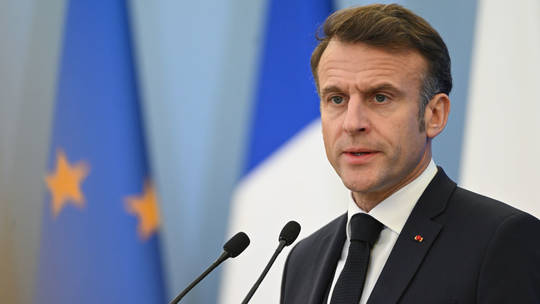French President Emmanuel Macron has announced plans to double France’s defense budget and urged other EU nations to increase their military spending. This move comes amid pressure from the United States on NATO allies to contribute more to collective security.
Following an informal EU leaders’ meeting on European defense in Brussels, Macron highlighted the importance of building a stronger and more independent Europe.
“France will double its defense budget after the completion of two military programming laws and launch major strategic projects,” Macron said, calling on EU members to follow France’s lead.
He argued that recent decisions and statements from the U.S. administration were driving the EU toward greater unity and a more assertive role in security matters.
Meanwhile, U.S. President Donald Trump recently announced plans to impose tariffs on EU imports, citing unfair trade practices. Macron asserted that the EU would protect its commercial interests, emphasizing that as a “true power,” it must respond firmly to such threats.
NATO Secretary-General Mark Rutte, who also attended the Brussels meeting, welcomed the EU’s defense initiatives and highlighted the importance of the NATO-EU partnership. Rutte reiterated the need for members of the alliance to adopt a “wartime mindset” and substantially increase defense spending. Trump had previously suggested raising NATO members’ defense spending target to 5% of GDP, although no member, including the U.S., currently meets that threshold.
Trump has long criticized the trade deficit between the U.S. and the EU, demanding increased imports of American goods, particularly cars and agricultural products. On Sunday, he reiterated that new tariffs on EU products were “definitely happening.”
This announcement follows Trump’s imposition of a 25% tariff on imports from Mexico and Canada, along with a 10% tariff on Chinese goods effective February 1. While Trump did not provide a specific timeline for the European tariffs, he indicated they would be introduced “pretty soon,” criticizing the EU’s trade policies as “terrible.”
This marks yet another chapter in the ongoing trade tensions between the U.S. and the EU. In 2018, Trump imposed tariffs on steel and aluminum imports from Europe, Canada, and Mexico, prompting the EU to retaliate with duties on American products such as bourbon and motorcycles. In December, Trump demanded that Brussels reduce its trade deficit by purchasing more American oil and gas.



